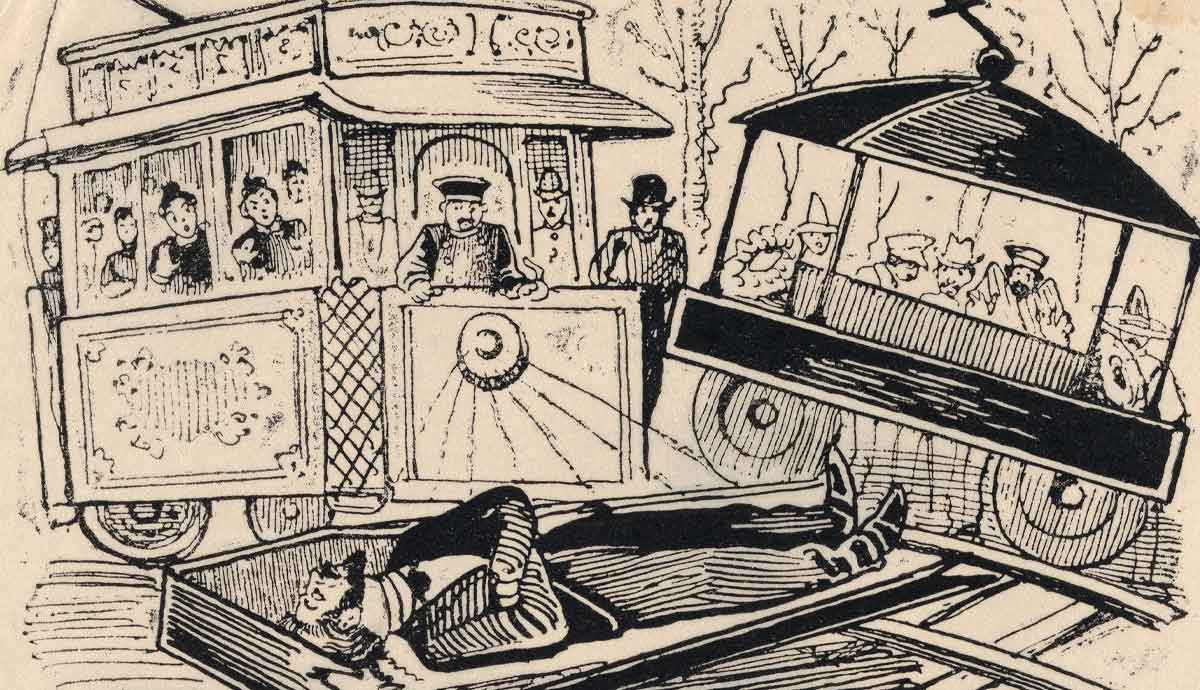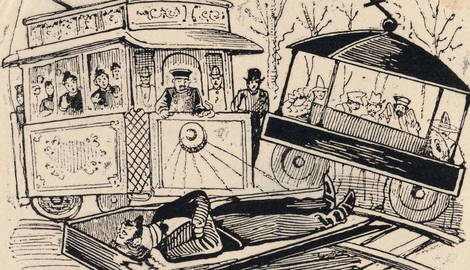
Act consequentialism is a moral theory that tells us the morally right action is always the one that will produce the best overall outcome in the world. In this article we will look at what act consequentialism is and whether it succeeds in providing humans with the best guidance on how to act morally in the world.
Origins of the Moral Theory

Theories about how humans ought to act in order to be morally good have long been debated by moral philosophers, with an unyielding division between those that believe the right action is always the one that results in the greatest amount of good, and others that argue that the right action is always dependent on individual rights and duties.
The moral theory outlined by consequentialism owes its core principles to utilitarianism, whose classic advocates were Jeremy Bentham (1789), John Stuart Mill (1861), Henry Sidgwick (1907) and George Moore (1873).
These utilitarian philosophers believed that an act is morally right if and only if it causes “the greatest happiness for the greatest number of people.” (Jeremy Bentham, 1987)
In his famous book, Utilitarianism, John Stewart Mill wrote: “Utilitarian morality does recognise in human beings the power of sacrificing their own greatest good for the good of others. A sacrifice which does not increase, or tend to increase, the sum total of happiness, it considers as wasted.” (John Stewart Mill, Utilitarianism, 1863)

Fundamentally, when a human is deciding how to act morally in any given situation, one should consider which action will produce the best overall outcome for the greatest number of people, regardless of what might be best for the individuals involved.
In this sense, morality and goodness according to utilitarianism are entirely agent-neutral, as if each individual is merely an impartial spectator that must decide on what benefits the majority.
In her book Modern Moral Philosophy, Elizabeth Anscombe devised the term ‘consequentialism’ to redefine a moral theory that focuses on the consequences of an action, rather than the best overall outcome for the greatest number of people. Act consequentialism in particular is a moral theory that considers both the action and the related consequences in the world.
Although still very much utilitarian in nature, consequentialist theories use these differences to escape some of utilitarianism’s greatest challenges.
The Trolley Problem: Utilitarianism vs Act Consequentialism

Whilst the difference may seem subtle, act consequentialists expand the scope of morality to both the action and the consequences that the action will have in the world. This is different from the utilitarian perspective, whereby the action itself is not important as long as it brings about the greatest amount of good for the greatest number of people.
To highlight the important difference here, consider the infamous Trolley Problem which draws attention to the key difficulty associated with utilitarianism.
The Trolley Problem goes as follows:
“Imagine you are standing beside a train track and in the distance, you see a runaway train carriage hurtling down the track towards five people who cannot hear it coming. You realize you have the choice to quickly pull a lever which will divert the carriage along a different track which only has one person on it. Do you step in and pull the lever in order to save five people, directing the trolley to kill the one innocent person instead? Or do you take no deliberate action and let nature take its course?”

According to utilitarian principles you should always pull the lever to save five people since this would create the greatest amount of good for the greatest amount of people. These difficult moral dilemmas are often used to put utilitarianism on trial, often leading to incredibly hard hypothetical scenarios that force the utilitarianist hand into permitting morally unjust or unreasonable actions.
The utilitarian that says pulling the lever is always the morally right action must also agree to this even if the one innocent bystander was a family member or friend. However, the act consequentialist has far more flexibility in their answer.
Since the act consequentialist takes into account both the action itself and its consequences, one could say that the action of deliberately pulling the lever to kill one innocent person might produce worse consequences, since it might lead to a society where people start using murder as a tool to benefit others. Perhaps a sneaky but useful tool in the act consequentialist handbook!
Similarly, the utilitarian philosopher would justify the murder of a rich man who intends to leave his money to charity, whereas the act consequentialist could appeal to the fact that murdering innocent people would not lead to the best set of consequences in the world.
Act consequentialism cleverly escapes the stringency of utilitarianism, especially when it comes to unjust issues of lying, cheating, stealing and murder which often seem to be justified under utilitarian principles.
Does Act Consequentialism Provide Us with a Good Moral Theory on How to Act?

Intuitively, act consequentialism is an appealing moral theory, especially when compared with its stricter family member, Utilitarianism.
However, Bernard Williams was one of the first philosophers to highlight consequentialism’s inherent issues.
In his attack on consequentialism, Williams claims that this moral theory leads to ‘negative responsibility.’ Negative responsibility happens when an individual is responsible not just for the consequences they produce by their own actions, but also for consequences that they allow to happen through inaction or by events they fail to prevent others from producing.
Reflecting on this, Williams says: “…if I am ever responsible for anything, then I must be just as much responsible for things that I allow or fail to prevent, as I am for things that I myself, in the more everyday restricted sense, bring about” (Railton, 1984)
Essentially, Williams says that no consequentialist theory can coherently describe the relationship between an individual’s action or inaction and its consequences in the world, for it would be humanly impossible to consider all possible consequences for any one given action.
Williams claims that “anyone who stops to calculate consequences before taking any step to fulfil a commitment is not a person of integrity”. (Railton, 1984)
“Act Consequentialism Demands More Than Morality Would Ever Require”

McNaughton & Rawlings also agree that act consequentialism is too demanding as a moral theory as it draws no cut off point at which a moral agent has done all that is required to do and consider. (McNaughton & J. Rawling, 2007)
Imagine you have been working and saving for a new pair of shoes and you finally go to buy them: would it be necessary to consider the consequences of doing so? One might reach the conclusion that the money could in fact be donated to charity instead, as this would certainly be a better action and have better consequences. But if this is what act consequentialism requires from every person in every decision, then this theory is supererogatory – “it is more than morality would ever require.” (McNaughton& J. Rawling, 2007)
Thomas Nagel points out that consequentialist theories, including act consequentialism, fail to escape some of the original issues encountered by utilitarian principles. Nagel says that consequentialism can still lead to an individual “doing something quite horrible. (S, Scheffler, 1988)

This is due to the agent-neutral standpoint that consequentialist theories adopt. Consider another classic hypothetical example involving the dilemma of a doctor and an organ donor:
“A doctor has the option to remove the organs of one unsuspecting patient and transplant them into five patients who would otherwise die. Should the doctor go ahead with this since it would save five children, even if this goes against his own moral intuition and values?”
Consequentialism would say that the moral thing to do would be to save five people at the cost of one, since this would have the best overall consequences.
Can Act Consequentialism Escape This Dilemma?

Although the act consequentialist could say that the action itself would be dishonest – and having dishonest doctors would not lead to the best set consequences in the world – this only leads back to Williams’ notion of negative responsibility.
No matter what course of action the doctor chooses, he would somehow have to weigh up every possible consequence, holding himself responsible for the consequences of both action and inaction. Williams and Nagel alike suggest that morality requires more integrity, sensibility and individual agency than this. Individuals are more than an impartial spectator that must weigh up the consequences and outcomes of each action.
Nagel argues that not all values are agent neutral. “Reasons that are neutral with respect to the agent depend on what everyone ought to value, independently of its relation to himself’. (Nagel, 1991)
As moral agents that have integrity, we act on agent-relative reasons even though our actions affect what happens in the world. Nagel suggests that often our relationships and duties between family and friends might guide us into the best course of action, rather than solely thinking about the action itself and its consequences.
Are There Any Better Alternative Moral Theories?

The strongest opposition to consequentialist and utilitarian principles comes from deontology, a moral theory established by Immanuel Kant.
Kant says that actions are good or bad according to a clear set of rights, rules and obligations that each person lives by. Unlike consequentialism, at the heart of deontology is individual integrity, autonomy and dignity. This is called Kant’s Categorical Imperative, which outlines that the moral way to act should consider these three imperatives:
- Maxim of Universalizability — act only so that you can will that it become a universal law for all.
- Maxim of Human Dignity — act only so that you always treat humanity as ends in themselves, never only as a means.
- Maxim of Autonomy — act only as though you are motivated by your own rationality.
Kant’s categorical imperative draws an ethical line in the sand that prevents individuals from acting in a certain way towards other people and themselves. For deontologists, a person is never just a means to an end, even if the ends produce the greatest amount of good or the best consequences in the world.
The onlooker should not pull the lever so that the train carriage kills one person instead of five people.
The rich man should never be killed as a means to give a charity his money.
The doctor should never use the organs of one person to save five people.
For Kant, it is always immoral to kill, lie, steal or act wrongly towards other individuals, despite what consequences or greatness it might achieve, for it goes against his categorical imperative.
Is Act Consequentialism (Along with All Moral Theories) Doomed?

Kant’s categorical imperative and other deontological theories about human morality are of course not immune to criticism, just like act consequentialism. Many contemporary philosophers have since claimed that all theories of morality are fundamentally tragic and come with impossible demands.
Given the subjectiveness of human values, relationships, duties and obligations, together with the vast array of morally difficult situations that may occur (hypothetically or in actuality), perhaps moral theories are doomed to fail from the outset. One thing is for sure: the debate will go on.
Bibliography
- D, McNaughton& J. Rawling, Principles of Health care Ethics, (Wiley Blackwell 2nd Edition, 2007)
- Nagel, T. (1991) Equality and Partiality, Oxford: Oxford University Press.
- Peter Railton, Philosophy & Public Affairs, vol. 13, no 2, (Blackwell Publishing, 1984)
- S, Scheffler, Consequentialism and its critics, (Oxford, Oxford University Press, 1988)
- Utilitarianism and Other Essays by Jeremy Bentham, Penguin Books Ltd, 1987










